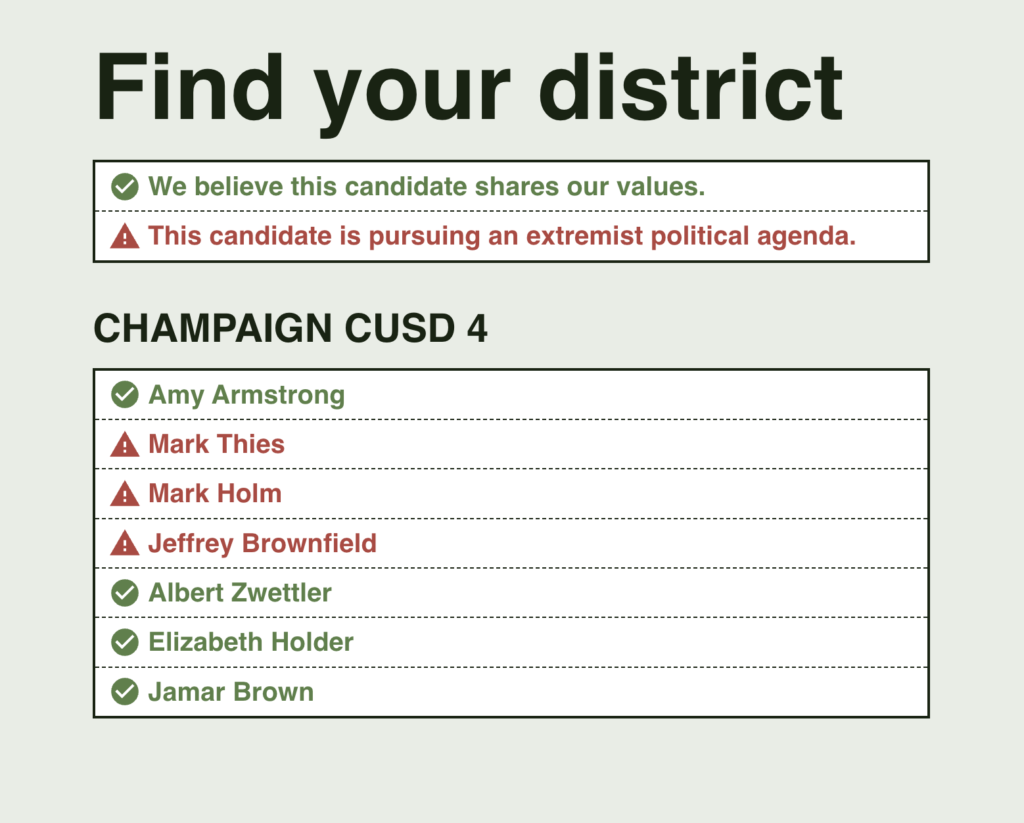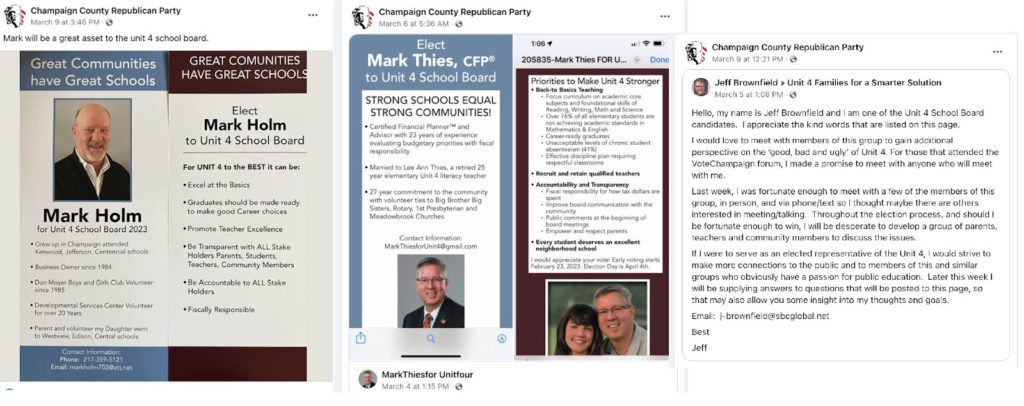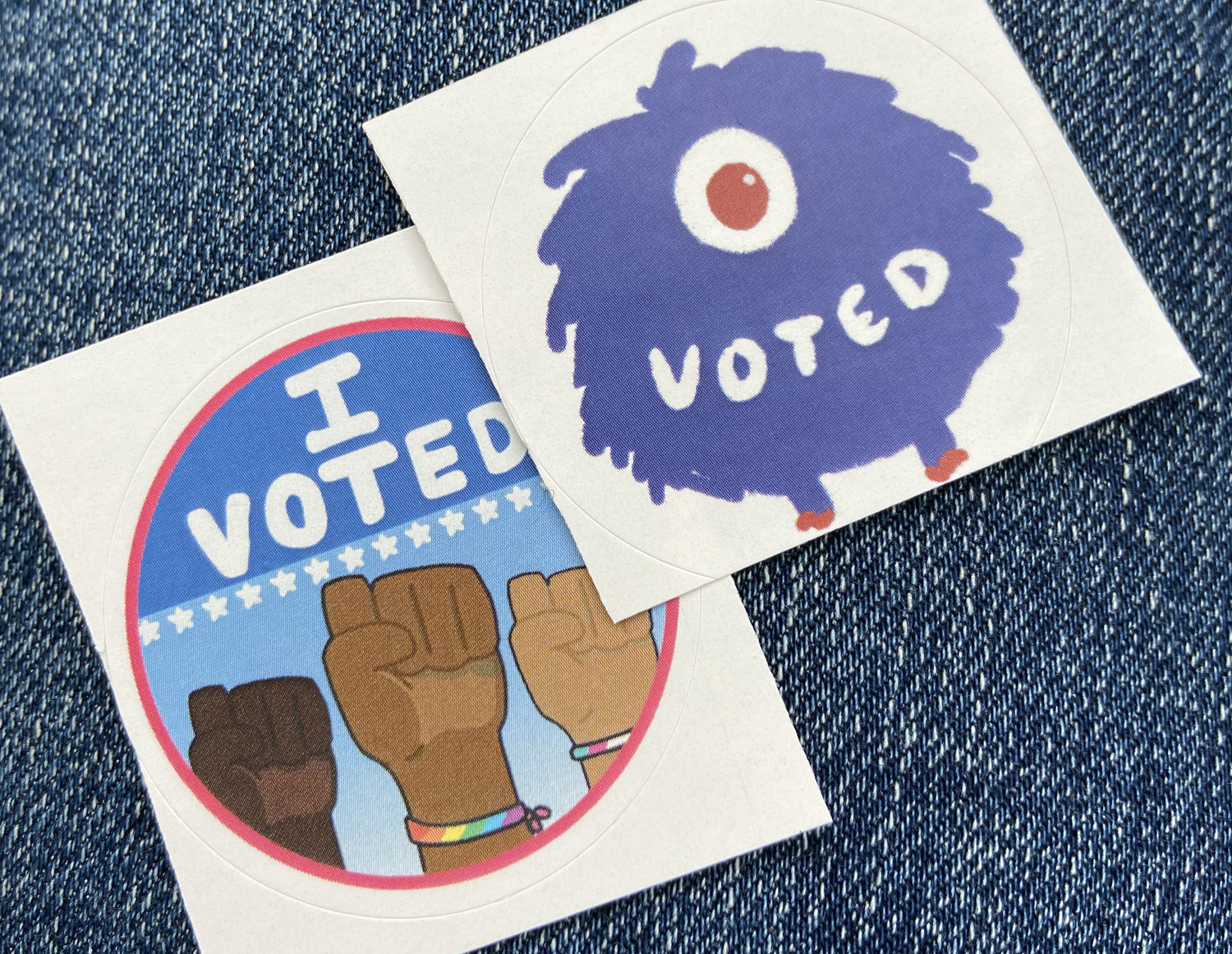This Editorial Board has written about the importance of local elections many, many times, offering our takes on local politics each election cycle for several years. Our motivation in doing this is to inform you, our readers, that there is an election and to encourage you to explore who is on the ballot. We sometimes endorse candidates, though it’s no surprise that we have almost exclusively endorsed Democrats.
The current race is a local one, and nearly all of the positions on the ballot are non-partisan, which means candidates don’t need to declare a party affiliation. The idea of “neutral” local officials is bogus because no one is neutral, and it makes knowing which candidates share your values more difficult to discern. Yet it’s of the utmost importance to vote in these elections, because these officials make decisions that impact your family’s daily lives, often even more acutely than those made at the state or federal levels.
So here we are, with yet another editorial imploring you to vote in next week’s local election. Yes, next week: Tuesday, April 4th. You can even vote now (in person and via mail.) Historically, these elections have truly abysmal turnout, often with less than 25% of eligible voters participating. That means that some races are decided by just a handful of votes. Even if you disagree with everything else in this editorial, we ask just one thing:
Please vote. With the continuing vote by mail list option introduced in Spring 2021, you don’t even need to remember the date or leave the house. There is no excuse to not vote.
Here are the races we’re watching most carefully this cycle:
- Urbana Unit 116 School Board (all eight sub-districts)
- Champaign Unit 4 School Board (four at-large seats)
- Mayor, City of Champaign
- Champaign City Council (three at-large seats)
Let’s start with the school boards. In Urbana, each of the seven sub-districts will elect a representative to the board. These seats are elected by those small geographic areas, which means each Urbana resident will only elect one seat, based on where they live. As we discussed recently, though the problems plaguing Urbana schools often are noticed less than those in Champaign, there are plenty of problems that need thoughtful, considered solutions. Each of the candidates in Urbana is running unopposed, save for write-in candidates. If you don’t like any of the candidates or wish it was more of a contest, now would be a good time to consider running for office yourself in the future.
In Champaign, where the dramatics of the school board are much more visible, we are closely watching the race for the four at-large seats. Each Champaign voter will select four candidates; they are not determined by location or neighborhood. On the ballot are Amy Armstrong (the only incumbent), Jamar Brown, Jeffrey Brownfield, Elizabeth Holder, Mark Holm, Mark Thies, and A.J. Zwettler. We recently put questions to all of the candidates; Jamar Brown, Mark Holm, and Mark Thies have not yet responded.
Nationwide — and here in Illinois — there have been efforts from the right to influence these types of elections. People like far-right extremist Darren Bailey are involved, as well as other extreme groups and PACs. Those groups are proposing policies and standards that target historically excluded groups, and marginalized and vulnerable children, specifically within BIPOC and LGBTQ+ communities. They are dedicated to further entrenching a white, Evangelical Christian worldview in public schools. Their policies are dangerous.
In response, the Illinois Democratic Party launched a website, DefendOurSchoolsIL, that helps identify extremist candidates. As many of these school board races are non-partisan, it can sometimes be difficult to determine where a candidate stands or what they believe. Candidates are able to hide behind vague, empty language, like “every child deserves a good neighborhood school,” and “we need to get back to the basics.” In Champaign, the DefendOurSchoolIL project has identified three candidates as potentially holding extremist, right-wing views: Jeffrey Brownfield, Mark Holm, and Mark Thies. (They dispute these claims.)

If this is something that concerns you — and it should — you can accept the Illinois Democratic Party’s assessment and vote accordingly. But you should also listen to what the candidates are saying in forums like the one organized by the League of Women Voters a few weeks ago. Are these candidates articulate about why they want to focus on “fiscal responsibility?” How will they assess the success of programs they want to cut? Who benefits from these cuts?
You can also look around to see who is championing these candidates. Some of the candidates are offering to sit down and talk with voters. Take them up on that. Hold them accountable for offering meaningful content, not just empty platitudes.

The City of Champaign’s mayoral race is between three candidates: incumbent Deb Feinen, former mayor Don Gerard, and Azark David Cobbs. We put questions out to all three candidates; so far, only Feinen and Gerard have responded. You can listen to an interview Cobbs did with Illinois Public Media to learn more about his candidacy. Feinen is seeking a third term, and touts her leadership through the 2020 pandemic crisis as a strong point. Gerard has noted the dissolution of Downtown Champaign’s cultural life and vacant storefronts, as well as the rise in taxes, as serious issues he plans to address.
The mayor works in conjunction with the city council. There are three at-large seats open, and four candidates: incumbents William Kyles and Mathew Gladney, as well as former Champaign Unit 4 Schools board member Kathy Shannon, and former city council member Greg Stock. You can learn more about some of these candidates on the podcast I Have to Ask with Elizabeth Hess as well as through the News-Gazette’s candidate interviews. Smile Politely will be publishing interviews with city council candidates over the next few days (Greg Stock’s has already published), so please check back for those. We encourage you to reflect on the last four years of decisions and ask if you would like to continue with that type of leadership. If not, consider which candidates might align more with your vision for this community.
You may think that a certain candidate’s election is inevitable because you’ve received 800 postcards in your mailbox or on your front door. Those candidates might have a more well funded campaign, but their election is not guaranteed. These sorts of elections can be determined by a few dozen votes.
Please vote in these very important elections. The people who are elected to these positions running our cities and our school boards make the decisions that affect our daily lives. What’s the environment like in your kid’s school? What’s the policing situation downtown? All of that is on the ballot next week.
The Editorial Board is Jessica Hammie, Julie McClure, and Mara Thacker.








